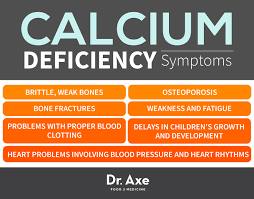Visual Impairment .... Health causes
Visual Impairment .... Health causes
Brought to U....http://successgain.us and http://successgain.info
My memories
Visual Impairment .... Health causes
Posted in 2015
My advise
1... Protect your health with healthy habits
2... Follow Healthy habits and enjoy the life
Brought to U .... http://successgain.info
Brought to U....http://successgain.us and http://successgain.info
My memories
Visual Impairment .... Health causes
Posted in 2015
- Diabetic Retinopathy: People with diabetes can experience day-to-day changes in their vision and/or visual functioning as a result of the disease. Diabetes can cause blood vessels that nourish the retina to develop tiny, abnormal branches that leak. This can interfere with vision and, over time, may severely damage the retina. Laser procedures and surgical treatments can reduce its progression, but regulating blood sugar is the most important step in treating diabetic retinopathy.
- Retinitis pigmentosa gradually destroys night vision, severely reduces side vision and may result in total vision impairment. An inherited disease, its first symptom-night blindness-usually occurs in childhood or adolescence.
- In amblyopia, the visual system fails to develop normally during childhood. The blurry vision that results in one or both eyes is not easily corrected with normal glasses or contact lenses alone.
- Retinopathy of Prematurity (ROP). Retinopathy of prematurity occurs in infants born prematurely. It is caused by the high oxygen levels in incubators during the critical neonatal period.
- Retinal Detachment. With a retinal detachment, the retina separates from its underlying layer. It can cause total vision impairment in the affected eye. Causes include holes in the retina, eye trauma, infection, blood vessel disturbance or a tumor. If diagnosed early, most detached retinas can be surgically reattached with vision partially or completely restored.
- A cataract is a clouding of part or all of the lens inside the eye. This clouding interferes with light reaching the retina at the back of the eye, resulting in general loss of vision. Causes include aging, long-term exposure to the sun's ultraviolet radiation, injury, disease and inherited disorders. If the eye is healthy, a cataract can be surgically removed. Usually an intraocular lens implant is inserted in the eye, and vision is restored. Cataract surgery has a high success rate in otherwise healthy eyes. However, cataract surgery is not always possible for people who also have other eye diseases. These people may require low-vision rehabilitation to maximize their remaining vision.
- Glucoma causes damage to the optic nerve. Most commonly, this occurs due to increasing internal pressure in the eye because of prolaucomablems with the flow or drainage of fluid within the eye. It can also occur when the internal pressure of the eye does not increase (normal tension glaucoma), but there is not enough blood flow to the optic nerve. There are no early symptoms in the most common form of glaucoma, but the first signs of damage are defects in side (peripheral) vision and difficulty with night vision. If diagnosed early, it can be treated with drugs, or sometimes surgery can minimize vision loss.
- Acquired (Traumatic) Brain Injury. Vision can also be lost or damaged as a result of head injuries, brain damage and stroke. Signs and symptoms can include reduced visual acuity or visual field, contrast sensitivity, blurred vision, eye misalignment, poor judgment of depth, glare sensitivity, confusion when performing visual tasks, difficulty reading, double vision, headaches, dizziness, abnormal body posture and balance problems.
My advise
1... Protect your health with healthy habits
2... Follow Healthy habits and enjoy the life
Brought to U .... http://successgain.info




Comments
Post a Comment